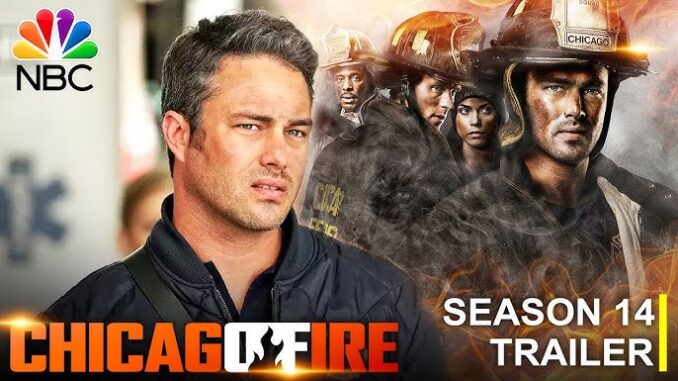
The metallic groan of a firehouse door, the shrill pierce of a dispatcher’s call, the frantic scramble of boots on polished concrete – these are the familiar heartbeats of Firehouse 51, the pulse of NBC’s “Chicago Fire.” It’s a world built on the bedrock of routine, risk, and the unyielding bond of a chosen family. So, when a familiar face returns to that family, the event carries a profound weight, even if, as in the case of Ritter, his return is not full-time, and Daniel Kyri finds himself back in a limited role, a storyline marking a specific beat in the show’s enduring narrative, perhaps around the "14 md07" mark in its extensive run.
For seasons, Darren Ritter, portrayed with an understated warmth and growing confidence by Daniel Kyri, has evolved from a shy, observant probie into a vital, compassionate paramedic. He is the quiet anchor, the perceptive soul, the steady hand who often sees what others miss. His absence, whenever it occurs, leaves a subtle but noticeable void, a missing piece in the complex puzzle of Firehouse 51. The news of “Ritter Returns” isn't just a plot point; it’s a promise of comfort, a return to normalcy for both the characters and the audience.
Yet, the qualifier – “but not full-time” – adds a layer of poignant realism. Life, especially in the high-stakes world of first responders, rarely offers clean, immediate resolutions. A partial return speaks volumes about the challenges of recovery, the lingering effects of trauma, or even the practicalities of a demanding production schedule. It suggests a character easing back into the rhythm, perhaps not yet ready for the full brunt of the chaos and heartbreak that defines their daily existence. This isn't a lesser return, but a more nuanced one, reflecting the ebb and flow of human capacity.
Daniel Kyri, in this “limited role,” becomes an artisan of subtlety. His performance isn't about grand declarations or heroic saves in these initial episodes; it’s in the quiet observations, the slightly hesitant smile, the watchful eyes that still carry the echoes of an untold journey. He conveys a presence that is both longed-for and still fragile, a re-tuning instrument finding its pitch within the orchestra of the firehouse. We see him perhaps assisting with less demanding tasks, offering counsel from the sidelines, or simply being present, a grounding force whose mere existence reaffirms the team's completeness, even if his operational capacity isn't at 100%.
This strategic narrative choice, characteristic of long-running procedural dramas like "Chicago Fire," serves multiple purposes. It allows the show to explore themes of rehabilitation and reintegration, acknowledging that even the strongest among us need time and space to heal. It also creates opportunities for other characters to step up, filling the temporary void, showcasing their growth and competence in Ritter's absence, only to then readjust when he re-enters the fold. The limited role allows the tension of his full return to simmer, building anticipation for when Ritter is truly back in the thick of it, wielding his medical expertise and gentle strength without reservation.
In essence, Ritter’s not-full-time return, and Kyri’s limited role, isn’t a diminishment but an illustration of the show’s commitment to authentic human experience. It reminds us that heroism isn't just about charging into burning buildings; it's also about the quiet courage to return, piece by painful piece, to the life you were meant to live. It’s a testament to the enduring appeal of "Chicago Fire" that even a partial return can resonate so deeply, reminding us that every member, in every capacity, plays a crucial part in the ongoing symphony of Firehouse 51. The "14 md07" marker simply points to a chapter where the quiet resilience of a character, and the actor portraying him, speaks volumes about the intricate dance between absence and return.
